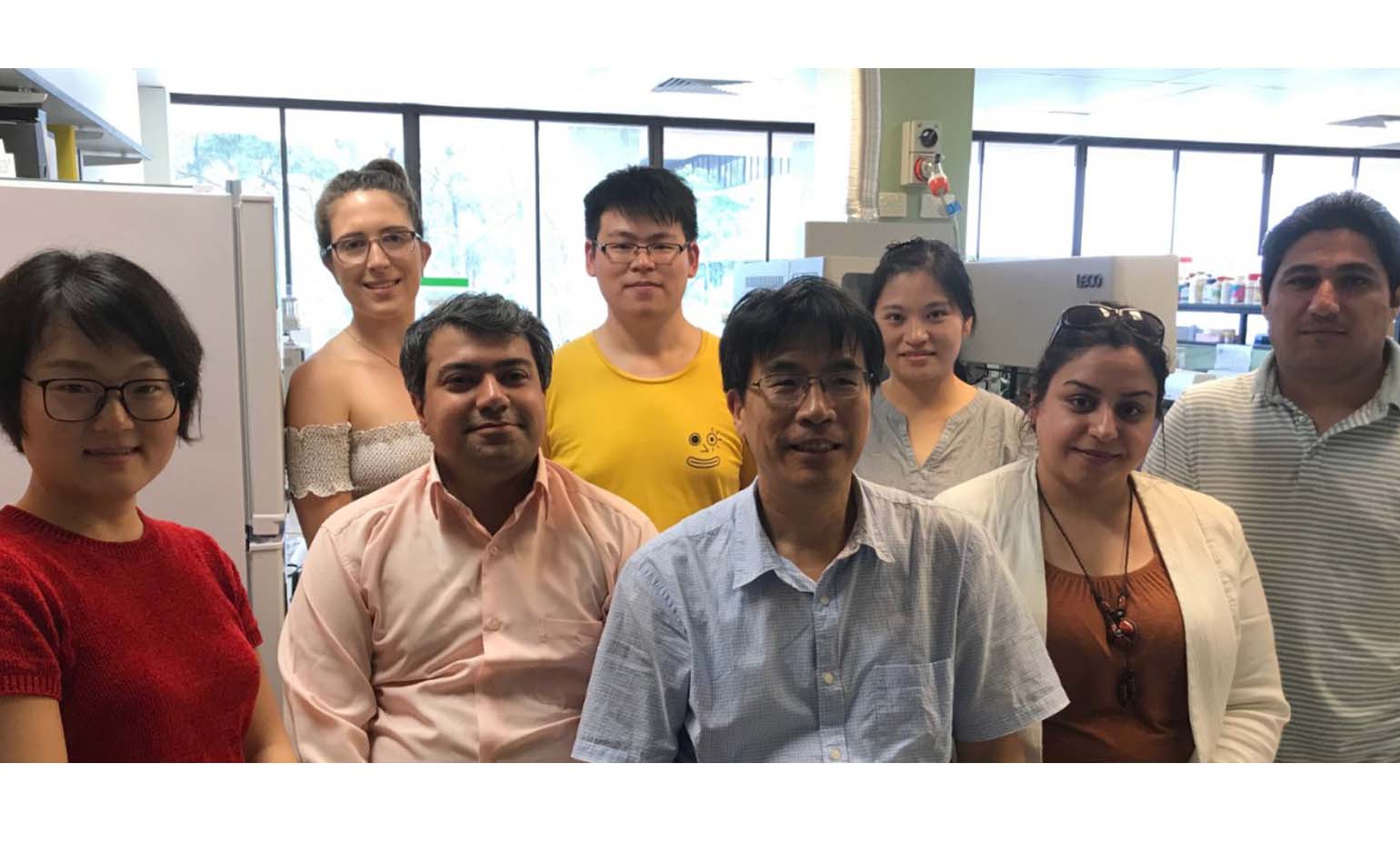Professor Chen with his colleagues from Griffith University
Professor Chengrong Chen of Griffith University is well known to many Soil CRC participants as a soil biogeochemist. However, he could well have followed a different path.
Growing up in a small coastal town in rural China, Professor Chen’s love of the ocean gave rise to a dream of becoming a marine biologist.
A decade of unrest due to the Cultural Revolution meant that his early school years were heavily disrupted, and he couldn’t study until the last two years of high school.
University places were very hard to come by.
“At the time there were only 2 or 3% of people receiving a place at University. As China opened up to the world in 1978, I was very lucky to sit for the entrance exam and be offered a place at university,” Professor Chen said.
However, due to an issue with his eyesight, he was unable to study marine biology. Chen was offered a place to study soil science at Fujian Agricultural and Forestry University on the south east coast of China.
“The University was a very long way from my home. To get there I had to walk for two hours from home to the closest city, then catch a very slow train for nine hours. I would only go home once a year!
“The accommodation was basic, but it was provided by the government. I shared a dormitory with eight students. We couldn’t choose electives, so we all did the same subjects together for four years. We became a really close group.”
They are such a close group that they still get together. Recently Chen caught up with some of those University friends for a 40-year reunion.
“Five of that group that are now living in Australia, with only three still working in soil science at universities across the world,” Chen said.
Completing his undergraduate degree embedded a strong interest in soil chemistry and plant nutrition.
“I spent nearly four years studying soil. We did the foundational courses, and then we got into the soil chemistry and physics. I really loved it,” Chen said.
Chen became more and more interested in soil microbiology, which led him to New Zealand. He and his family moved there, and he began studying his Masters in Biological Science at the University of Waikato. He later moved to Lincoln University to complete his PhD.
“I spent my time studying microbiology and biogeochemistry of soil and looking at forests in New Zealand.”
“When I started my PhD, I focused on phosphorous in soils. How organic phosphorous transforms and how microbes relate to that.
“Overall, my study has really centred on soil chemistry, soil biology, soil physics. My academic training has given me a great opportunity to look at soil from a different angle.”
Now Chen is a Professor at the School of Environment and Science at Griffith University, who are a major partner in the Soil CRC. (link to Griffith profile). He also leads the Soil CRC team in Soil Environmental Biogeochemistry.
The first thing he tells his soil science students is that soil is not dirt, but a living being.
“I teach my first-year students that soil is a microbial system, just like a human being”.
Chen leads two projects at the Soil CRC, both in Program 3 – New products for soil fertility and function.
New organic amendments for retaining soil moisture
This project will develop novel, highly efficient and environmentally friendly moisture retention materials to enhance soil moisture capture and retention and improve seed germination and crop establishment under dry conditions.
Evaluating alternative rhizobial carriers
This project is developing cost-effective alternatives to peat for carriers of rhizobial inoculants. This will help improve legume nitrogen fixation and soil productivity in Australian farming systems.
Chen says it’s the collaboration that he values most about the Soil CRC.
“The CRC not only involves different researchers but also farming groups. These groups are very keen to be involved and they are very knowledgeable and practical. It brings a great diversity to our research and ensures it is relevant,” he said.
Chen believes the focus on agricultural production and productivity and sustainability of the Soil CRC is vital.
“I really hope the Soil CRC becomes a key force to continue to fight for sustainable productivity of soils in Australia.
“We need to feed more people, the growing worldwide population. If we are to reach the $100 billion goal in 2030 for agriculture, it will put a lot of pressure on our system and soil. We have a very important role to play.”

